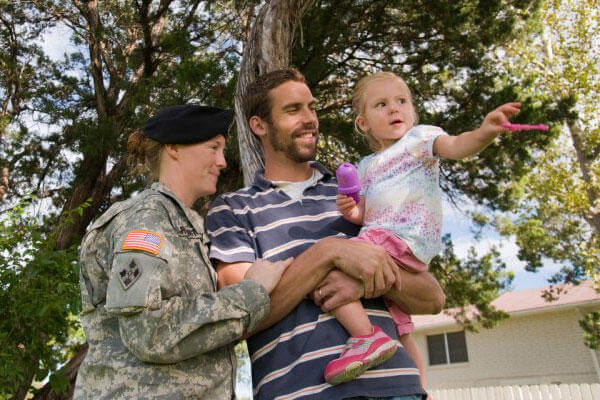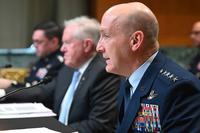Leave it to my family to complicate the already complicated. My brother and sister married a brother and sister, and my sister’s husband is my brother’s best friend. Convoluted, isn’t it?
First of all, it always requires lengthy explanations — such as legality. It also both strengthens and frays family ties. After nearly 10 years, we’re all still trying to figure out the boundaries.
For instance, even though my brother had first dibs on his best-friend/double-brother-in-law, it’s no longer appropriate for him to expect that they regularly cut loose for a weekend of fishing. It’s considered a monopolization of my brother-in-law’s time, testing his loyalty, annoying my sister and challenging my mother’s resolve to maintain absolute neutrality and equality. In short, it upsets the harmonious unit that is my family.
As military spouses, we’re encouraged to be one big, happy family, especially within the unit. And that’s a good thing — as long as we understand the boundaries, which at times can appear quite blurry.
While you can legitimately ask a friend to grab your kids off the bus, you can’t (or at least shouldn’t) ask the same of your ombudsman/family readiness leader or the first sergeant’s spouse — no matter how friendly your relationship.
Responsibilities within a unit can complicate relationships, admits Jennifer Boaz, of Fort Bragg, N.C. For spouses new to the military, the boundaries can be especially confusing. Very often, the first person a new spouse has contact with is someone in a leadership role — family readiness leader, key volunteer, ombudsman or the first sergeant’s or commander’s spouse. This person is (hopefully) welcoming and has all the information, so it’s easy to assume that they is the one you should turn to for routine help, says Boaz, who serves as a family readiness leader for her husband’s company.
“The misunderstanding is easily made,” she says.
But, really, why shouldn’t you expect your family readiness leader to help you in a pinch? Is the caring demeanor just a façade?
Definitely not, Boaz says. It’s simply a game of numbers. A leader can’t possibly meet every need.
“There are 58 women in the company, and one of me,” Boaz points out.
Jasa Bowser-Shaw, a veteran Navy wife and author of “The Life of a Navy Wife,” remembers the days when an ombudsman’s responsibilities were unlimited.
“It was, ‘Call me day or night no matter what you need,’” Shaw recalls.
Doctors’ appointments, trips to the grocery store and even vehicle maintenance were all part of the package.
To protect volunteers from such unrealistic expectations, there are now official guidelines spelling out the purpose and duties of family readiness groups. Navy policy states that ombudsmen are to serve as “communication links” and “referral resources.” Each of the other branches of service also officially limits leadership roles to, as Boaz puts it, “public relations.” Babysitting, taxi, financial counseling and any other services already provided by a military organization are excluded.
“It would be an awful lot to expect [one person] to provide all of these services,” says Paul Salesi, educator/ombudsman coordinator for Naval Station Newport in Newport, R.I.
So while we can, indeed, be one big, happy family, we can’t take advantage of those who are around to help us. It’s one thing to ask for information, it’s another thing to expect people within the unit to take care of every problem. Find the balance and everyone will be happy.
Keep Up with the Ins and Outs of Military Life
For the latest military news and tips on military family benefits and more, subscribe to Military.com and have the information you need delivered directly to your inbox.




























